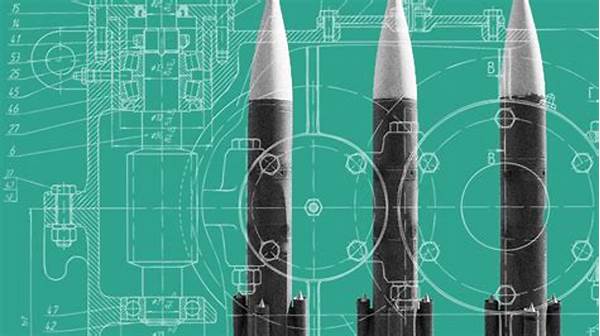In the contemporary international landscape, the dynamics of the arms race and global stability present a complex interplay that has far-reaching implications for geopolitical relations. As nations strive to augment their military capabilities, the specter of an arms race raises critical questions regarding the stability and security of the global order. This article seeks to elucidate these intricate dynamics by examining the factors that contribute to the arms race and their consequences on global stability.
The Dynamics of the Arms Race
The arms race represents a perpetual state of competition among nations to acquire superior military capabilities. This phenomenon is driven by various factors, including technological advancements, geopolitical rivalries, and national security imperatives. In the context of global stability, the arms race poses significant challenges as it fosters an environment of mistrust and heightened tensions among states. The relentless pursuit of military superiority can inadvertently contribute to an unstable international order, where the precarious balance of power may lead to increased risks of conflicts and confrontation. Moreover, the financial and human resources allocated to sustain an arms race often divert attention from pressing global issues such as poverty, health, and environmental sustainability, thereby further compromising global stability.
Historical Context and Implications
1. Historically, the arms race has often been a prelude to conflict, as exemplified by the Cold War era. This period highlights the intricate balance between military escalation and global stability.
2. The exponential growth in defense budgets among competing nations often exacerbates regional tensions. Such investments in military infrastructure can undermine efforts to achieve global stability and cooperation.
3. Technological innovations in warfare continually redefine the parameters of the arms race. The development of advanced weaponry, while enhancing defense capabilities, concurrently undermines prospects for longstanding global stability.
4. Diplomatic efforts and treaties aimed at curbing the arms race remain critical. However, violations and non-compliance undermine the credibility of these accords, threatening global stability.
5. Non-state actors exploiting advancements in armaments can destabilize regions, complicating efforts to maintain global stability amidst an arms race.
Consequences of an Unchecked Arms Race
An unbridled arms race has the potential to trigger destabilizing effects on global stability. The resources diverted towards military expenditures overshadow investments in social and economic development, widening disparities among nations. Furthermore, as countries engage in aggressive posturing to assert dominance, the risk of miscalculation and accidental conflicts increases, posing a direct threat to international peace. The arms race creates a perpetual cycle of provocation and response, impairing diplomatic efforts aimed at fostering cooperation and peaceful coexistence.
Strategies for Mitigating the Arms Race
1. Establishing comprehensive international treaties is essential in mitigating the arms race, thereby promoting global stability.
2. Multilateral dialogue and confidence-building measures can reduce tensions and foster an environment conducive to collaboration, enhancing global stability.
3. Strengthening the role of international organizations in monitoring and verifying arms treaties is paramount to curbing the arms race and ensuring global stability.
4. Encouraging transparency in military expenditures and arms development can build trust among nations, significantly contributing to global stability.
5. Promoting disarmament initiatives and regional peacebuilding efforts can effectively address the root causes of the arms race, safeguarding global stability.
6. Investing in conflict-prevention mechanisms can minimize the drivers of the arms race, mitigating potential threats to global stability.
7. Enhancing diplomatic communication channels is vital for diffusing tensions associated with the arms race, hence maintaining global stability.
8. Engaging civil society and non-governmental organizations in advocacy against the arms race can influence policy reforms towards global stability.
9. Leveraging technology for monitoring compliance with disarmament treaties can deter arms races and enhance global stability efforts.
10. Cultivating a collective security framework can address asymmetries in military capabilities, thereby bolstering global stability.
The Role of International Cooperation
International cooperation is crucial in addressing the challenges posed by the arms race. By fostering alliances and partnerships, nations can work collectively to establish mechanisms and frameworks aimed at curbing the proliferation of arms. Cross-border initiatives that promote transparency and accountability in military expenditures play a vital role in maintaining global stability. It is imperative for the international community to prioritize collaborative efforts over unilateral actions to mitigate the adverse effects of the arms race and fortify global stability.
Prospects for Future Stability
Looking forward, the prospects for global stability amidst an ongoing arms race hinge on the willingness of nations to engage in constructive dialogue and negotiations. The establishment of robust verification and enforcement mechanisms is essential to ensure compliance with disarmament agreements, thereby fostering confidence among states. Investment in peacebuilding initiatives and conflict resolution strategies can significantly reduce the impetus for nations to partake in an arms race, paving the way for lasting global stability. By prioritizing diplomacy and cooperation, the international community holds the potential to create a sustainable future free from the destabilizing impact of an arms race.
Summary
In summary, the interplay between the arms race and global stability remains a critical concern in contemporary international relations. The pursuit of military superiority, while perceived as a means of safeguarding national security, has profound implications for global stability. Historical precedents illustrate the perilous trajectories that unchecked arms races can lead to, underscoring the necessity for multilateral approaches and diplomatic engagements. To avert the destabilizing effects of the arms race, it is imperative for the international community to cultivate a culture of cooperation, transparency, and trust-building. By realigning priorities towards peaceful coexistence and collective security, there lies the potential to fortify global stability and assure a harmonious future.





